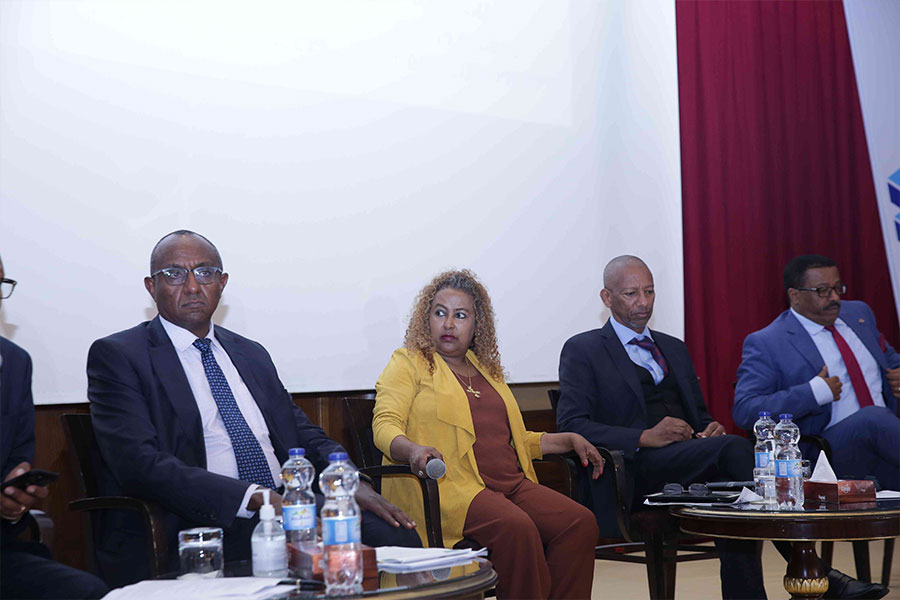
Commentaries | Jun 22,2019
The world is almost at a standstill as it grapples with an impending tragedy. What started out as the spread of an unknown respiratory virus in a Chinese city most of us had never heard of before has developed into a pandemic impacting the whole world.
The virus is spreading unabated, with Europe being its current epicentre, almost every person in almost every part of the world has been affected. It is a testament to the profoundly interconnected and globalised world we have created that a sneeze in Wuhan, China, can have an impact on every nation.
Ethiopia is no different, and neither am I. Fortunately, I have the rare advantage of being able to work from home, doing my part to social distance since March 15, 2020. Although this pandemic has affected us, and me, in a very personal way, we need to recognise that we have to contribute our part in the effort to curb the spread of the virus.
Each generation has its test. Undoubtedly, this is one of those. But the sacrifices we are asked to pay at the moment, such as personal hygiene and limiting contact with other people, is the least painful to pay.
It is only fitting that our efforts are compounded by the bold measures the government is taking to contain the spread of the virus. While the efforts are commendable, we are in need of more dramatic changes given the vulnerabilities of our healthcare system. Precautionary measures are the only things we have on our side. And this mainly has to do with social distancing, an effective method since the virus does not spread by itself. We aid it.
This means that we have to profoundly change the way we live and connect, especially considering that around a dozen people have tested positive for the disease.
Before this crisis, we were all in our corners of the world, arguing and fighting over almost everything we can think of. Today, humankind and its way of life is put to the test. Our beliefs and socioeconomic structures will be reconsidered. The fact that we have been ravaging the Earth of its resources, that we have turned away from science and knowledge and that we had begun to believe that global solidarity is unimportant have all been proven to be naïve at best.
Today we brace ourselves for what is to come, watching nations with better financial and structural strength barely able to care for their own citizens. It is hard to say what will be awaiting Ethiopia’s over 100 million people.
There is no denying that aggressive measures are being taken. However, what is being asked of countries such as Ethiopia by the World Health Organization (WHO) or even our Health Ministry seems impossible to accomplish here.
Social distancing is not going to be easy for Ethiopia, Africa’s second most populated country. Neither do our cultures and customs, or even economic structure, which revolves a great deal around social institutions and activities, have space to accommodate such changes. We mourn, celebrate and mostly just pass the time together.
Fighting the spread of the virus requires a fundamental socio-cultural shift. Social distancing is not a luxury we can choose to consider. It is a necessity that will save lives. This means people observing the recommendations of public health officials very seriously, and adhering to them as much as possible. It entails having a comprehensive understanding of what is expected of all of us.
As we play our personal part in the fight against this disease, we should also not forget those who are vulnerable and need help. There are tens of thousands of homeless people living in the streets of Addis Abeba. An overwhelming proportion of these are young. It is unfortunate that there has not been an initiative focusing on these groups from either volunteer groups or the government.
Rationality needs to lead the way ahead. It is through a sense of togetherness that we can get out of this situation. The only other recent virus with this global scale of reach is the Spanish Flu, an influenza pandemic that purportedly took the lives of 50 million people. The globalised world of today has made the spread of such a virus much faster.
Fortunately, we have modern technology and techniques to fight off the epidemic. These will only work, especially the latter one, if we adhere to the measures that are being advised by officials.
PUBLISHED ON
Mar 28,2020 [ VOL
20 , NO
1039]

Commentaries | Jun 22,2019

Viewpoints | Oct 14,2023

Fortune News | Mar 11,2023

Fortune News | Jun 17,2023

Radar | Mar 04,2023

Viewpoints | Nov 21,2018

Radar | Feb 27,2021

Fortune News | Apr 16,2022

Advertorials | Sep 15,2023

Obituary | Apr 27,2025

Dec 22 , 2024 . By TIZITA SHEWAFERAW
Charged with transforming colossal state-owned enterprises into modern and competitiv...

Aug 18 , 2024 . By AKSAH ITALO
Although predictable Yonas Zerihun's job in the ride-hailing service is not immune to...

Jul 28 , 2024 . By TIZITA SHEWAFERAW
Unhabitual, perhaps too many, Samuel Gebreyohannes, 38, used to occasionally enjoy a couple of beers at breakfast. However, he recently swit...

Jul 13 , 2024 . By AKSAH ITALO
Investors who rely on tractors, trucks, and field vehicles for commuting, transporting commodities, and f...

Oct 4 , 2025
Eyob Tekalegn (PhD) had been in the Governor's chair for only weeks when, on Septembe...

Sep 27 , 2025
Four years into an experiment with “shock therapy” in education, the national moo...

Sep 20 , 2025
Getachew Reda's return to the national stage was always going to stir attention. Once...

Sep 13 , 2025
At its launch in Nairobi two years ago, the Africa Climate Summit was billed as the f...